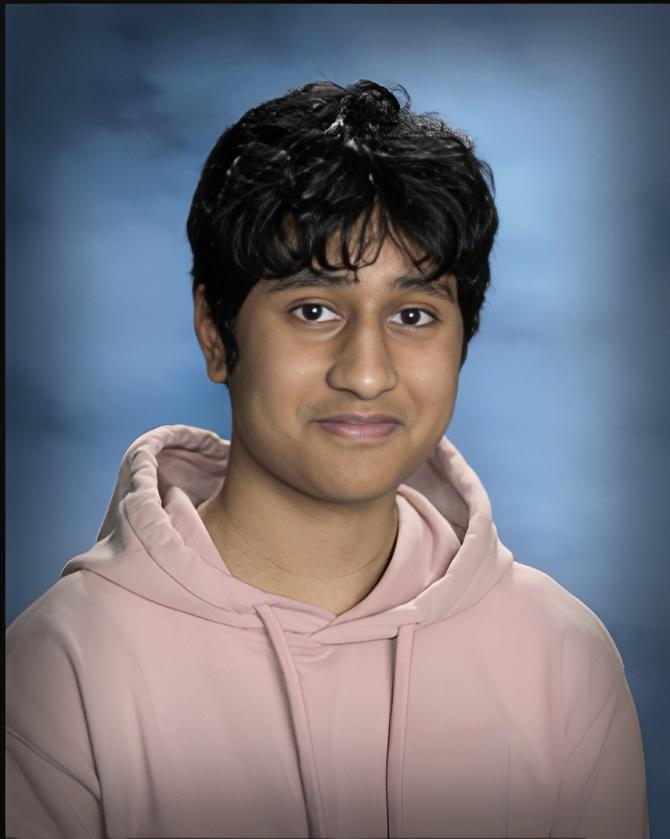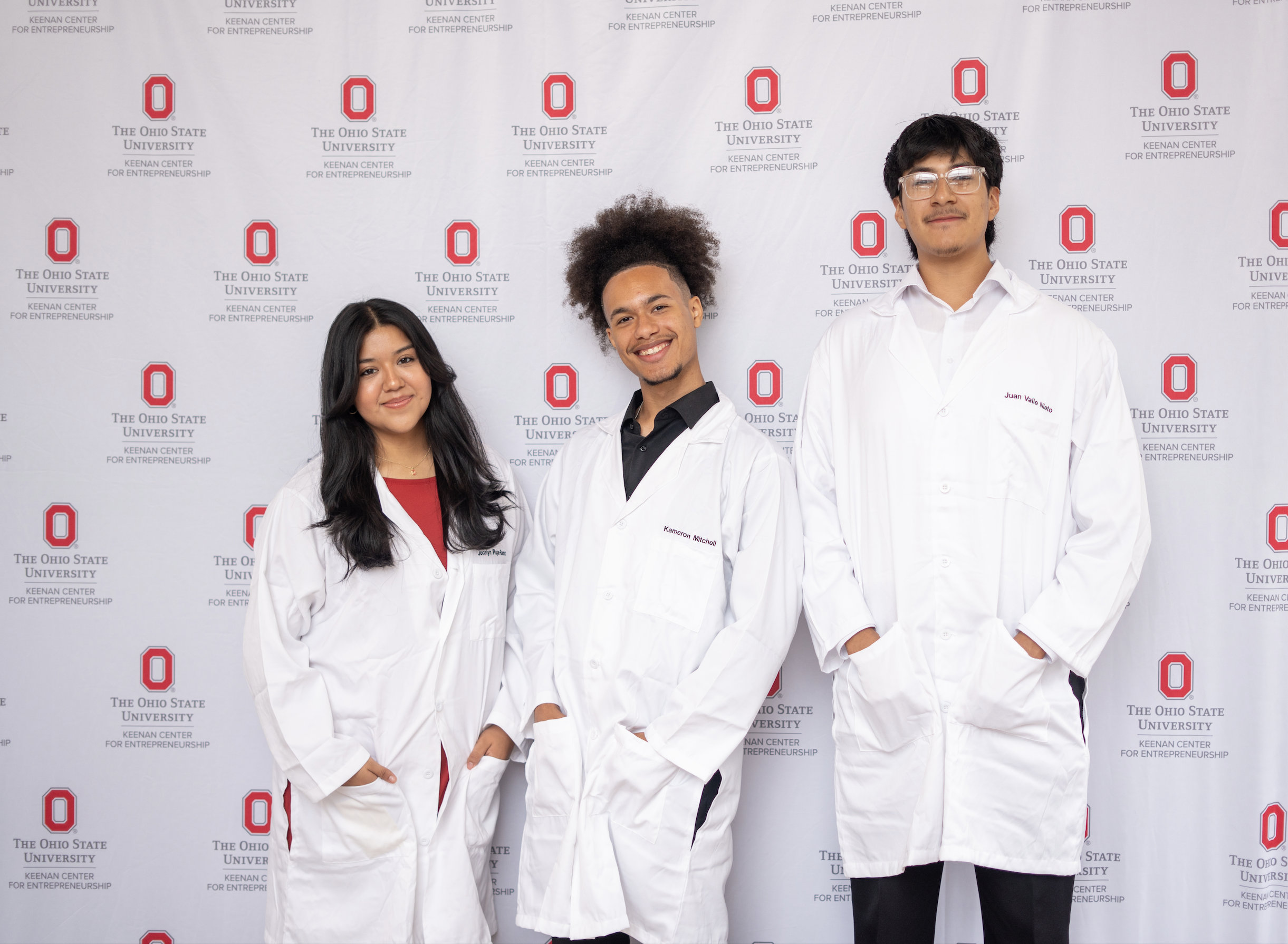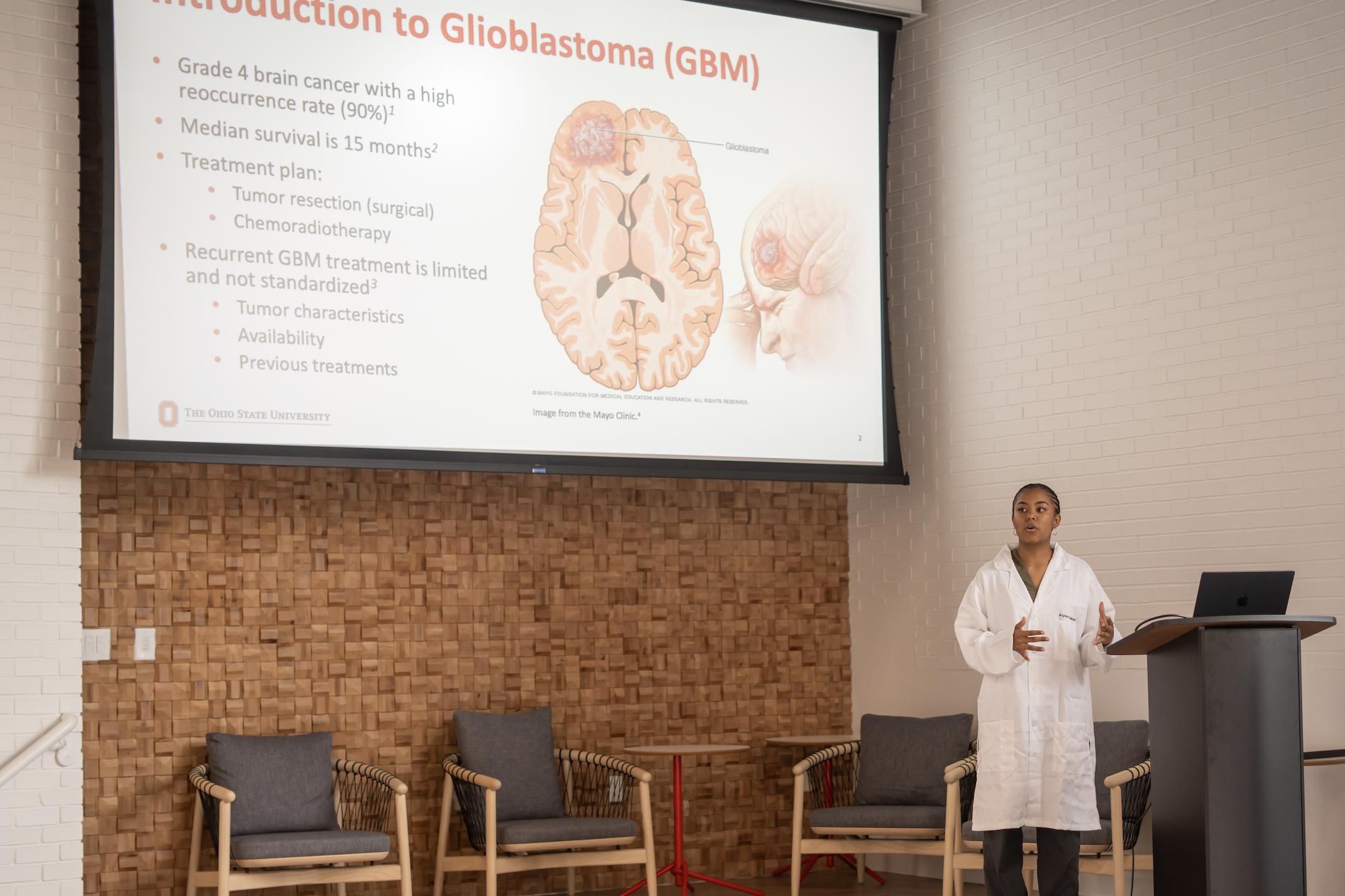For some students in the Student Experiences in Entrepreneurial Development (SEED) program, the summer offered a front-row seat to entrepreneurship. Kwasi Thornhill and Sid Gudanti stepped directly into the world of a biotech startup, working on projects that blended finance, engineering and science to help position the young company for growth. Others, like Kameron Mitchell and Alyssa Callahan, immersed themselves in faculty research labs, exploring technologies that could one day transform health care.
Thornhill, a finance major, and Gudanti, a computer science and engineering major, interned with DNA Nanobots, a Columbus-based biotech company spun out of the lab of Professor Carlos Castro. The company is developing nonviral gene therapies with the potential to reshape the way certain diseases are treated.
Thornhill applied his finance training to restructure the company’s financial model and update its business plan, giving the leadership team sharper tools to guide strategy and prepare for future fundraising.
“Being able to contribute to something so impactful makes the work easier to believe in,” Thornhill said. “This experience confirmed that I want to stay connected to entrepreneurship—whether that’s building startups or working in venture capital to help other companies grow.”
Gudanti contributed from a different angle, designing a custom electronic lab notebook system that streamlined how the company managed and shared experimental data. By replacing static spreadsheets and PDFs with a dynamic platform, he made day-to-day operations more efficient and supported the team’s scientific progress.



